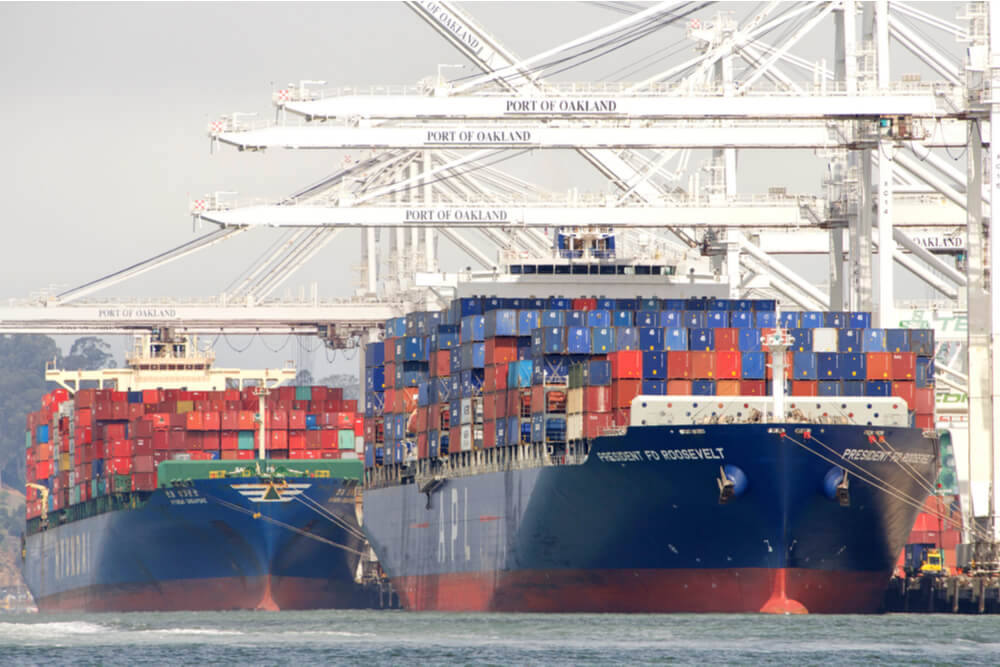
Decision-makers at the Port of Oakland are making a concerted effort to ship agricultural goods overseas following an outcry from growers.
Port officials recently launched an interagency response intended to improve supply chain hiccups that threatened to cost American farmers billions. Yard space has reportedly been freed up and a 25-acre paved container space will store overflow containers off-site. The dedicated off-terminal area will also house chassis and equipment to help expedite the flow of agricultural exports to Asia.
“The goal is to provide relief to agricultural exporters facing shortages of export capacity and skyrocketing logistics costs,” according to a port statement.
American agriculture exports faced persistent struggles to secure container vessel capacity to ship goods overseas. The logjams plaguing the Port of Los Angeles and Port of Long Beach caused cargo ships to redirect to Oakland and other West Coast docks. News of Asian manufacturers paying top-dollar for fast returns of empty containers put U.S. farmers in an unenviable position.
“We need the shipping companies to immediately restore the export lines from Oakland to Southeast Asia and the Indian subcontinent,” Port of Oakland Maritime Director Bryan Brandes reportedly said.
The Port of Oakland is the preferred export gateway for much of California’s agricultural exporters and refrigerated proteins. An even 50-50 flow of imports and exports made Oakland the port of choice for many growers. But when empty containers left perishable goods behind, industry leaders sounded the alarm. In a letter addressed to the White House, The Agriculture Transportation Coalition indicated that growers were hemorrhaging money during the summer months.
“The cost to ship a container has increased between 300 and 500 percent in the past 2 years; U.S. producers are losing from 10-40 percent of their export value to these added costs; an informal survey suggests that U.S. agriculture exporters’ inability to perform is leading to a loss of 22 percent of their sales,” the letter signed by upwards of 76 organizations reportedly states.
After a joint study between the University of Connecticut and U.C. Davis estimated “nearly 80 percent of all containers leaving California ports were empty,” corrective measures were set in motion. California port officials reportedly met with farming leaders and transportation executives to quell the crisis. Led by the senior Business and Economic Development advisor Dee Dee Myers, State Transportation Agency Secretary David S. Kim, and California Department of Food and Agriculture Secretary Karen Ross, the current solutions were developed and put into action.
The Golden State reportedly produces upwards of one-third of all U.S. vegetables and approximately two-thirds of the country’s fruits and nuts, while exporting more than $21.6 billion before the pandemic. The U.S. Department of Transportation recently allocated $57.5 million in grant money to update the ports of Oakland and Long Beach.
Sources: joc.com, theloadstar.com











Leave a Comment